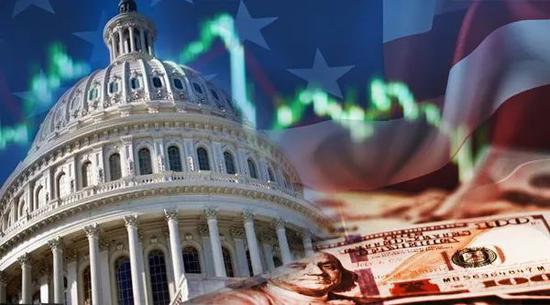Despite the recent jump in consumer prices, the Federal Reserve is not taking its foot off the gas. The central bank said today it's keeping interest rates near zero in an effort to encourage the economy's rebound from the pandemic recession. The Fed has to weigh competing demands to get people back to work while also trying to keep a lid on prices, which are climbing at the fastest pace in more than a dozen years. NPR's Scott Horsley joins us now.
Hi, Scott.
SCOTT HORSLEY, BYLINE: Good afternoon, Ari.
SHAPIRO: The Fed is projecting somewhat higher inflation this year, but it doesn't seem spooked by that. Why not?
HORSLEY: Yeah, the Fed raised its forecast for inflation to 3.4% this year. That's a full point higher than what officials were projecting just three months ago, and it's well above the Fed's long-term target of 2%. But policymakers at the central bank still think this jump in inflation is temporary, driven by surging demand as people come out of lockdown and the challenges that businesses are facing in keeping up with that demand. By next year, the Fed expects to see inflation settle back down to just over 2%, although Fed Chairman Jerome Powell acknowledges there's no guarantee.
(SOUNDBITE OF ARCHIVED RECORDING)
JEROME POWELL: Forecasters have a lot to be humble about. It's a highly uncertain business. And we're very much attuned to the risks and watching the data carefully.
HORSLEY: Powell did mention the price of lumber, which has already started to come down from its record high last month. And he expects to see something similar happened with other pricey items, like used cars, as the various bottlenecks are resolved in the months to come.
SHAPIRO: Some lawmakers seem skeptical that inflation is a passing fad. What are they saying?
HORSLEY: Iowa Republican Chuck Grassley brought this up during a Senate hearing today. He's worried that officials, including in the Biden administration, are being too nonchalant about rising prices. After all, the consumer price index jumped 5% over the last 12 months.
(SOUNDBITE OF ARCHIVED RECORDING)
CHUCK GRASSLEY: As we know from the 1970s, once inflation takes off, getting it back under control can require very painful measures. The early 1980s proved that.
HORSLEY: Grassley was quizzing Treasury Secretary Janet Yellen there, and she agreed nobody wants to go back to the bad, old days of the '70s, when inflation hit double digits, and the Fed had to slam the brakes on the economy to get prices under control. One thing officials think has changed since then is that people have now had decades to get used to stable prices, and so that expectation of stability is kind of baked in. But both the Fed and the White House say they are on guard for any change in expectations that might threaten that.

SHAPIRO: The Fed is pursuing its easy-money policies in hopes of getting back to full employment more quickly. Where do they see the job market going?
HORSLEY: Job growth over the last couple of months has been slower than a lot of forecasters were expecting. There are a record number of job openings, but employers just aren't hiring as fast as they would like. Powell says he does expect to get back to a strong labor market but not overnight.
(SOUNDBITE OF ARCHIVED RECORDING)
POWELL: Most of the act of sort of going back to one's old job, that's kind of already happened. So this is a question of people finding a new job, and that's just a process that takes longer. There may be something of a speed limit.
HORSLEY: Powell pointed to a variety of factors that might be keeping people from going back to work. Some people are afraid of the virus still. Some, of course, have child care responsibilities. And some are making more from enhanced unemployment benefits than they might at a low-paying job. Powell does expect to see a pickup in hiring as more people get vaccinated, as schools reopen and as those extra benefits phase out. Some of the states are already phasing them out.
SHAPIRO: And just briefly — the Fed, while it's keeping interest rates low for now, is also keeping the door open to an earlier rate hike in the past. What's that about?
HORSLEY: Yeah, a majority of the Fed's rate-setting committee now expects to see interest rates rising in 2023. That's a change from three months ago. And it reflects growing optimism about the recovery. One sign of that — the Fed dropped language in its statement today about the economic toll of the pandemic. Powell says we're not out of the woods yet, but he says it is great to see people out living their lives again.
SHAPIRO: NPR's Scott Horsley, thanks a lot.
HORSLEY: You're welcome.












